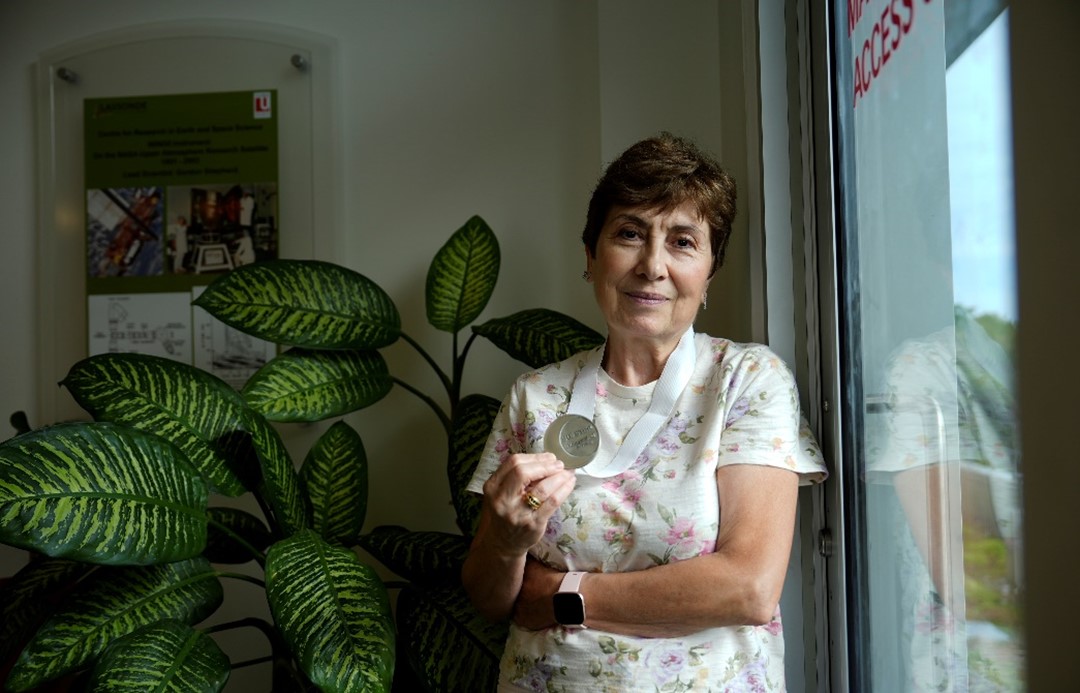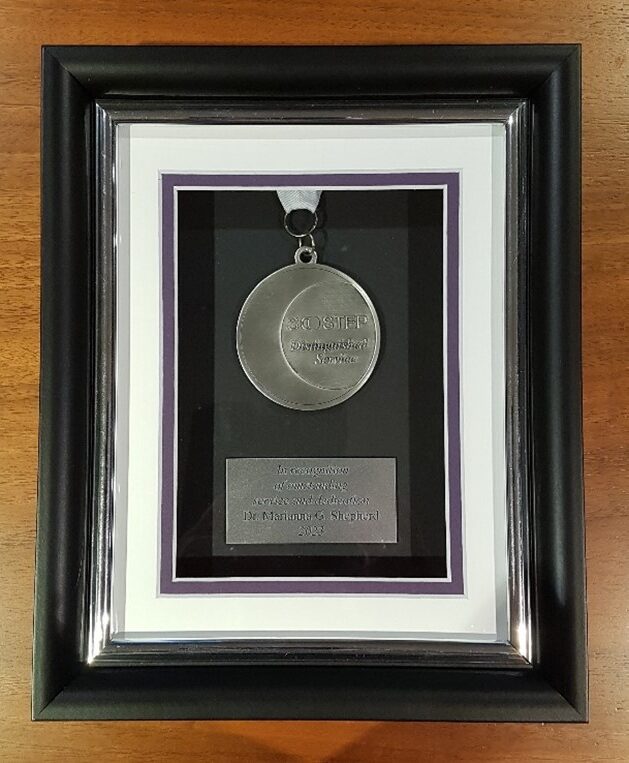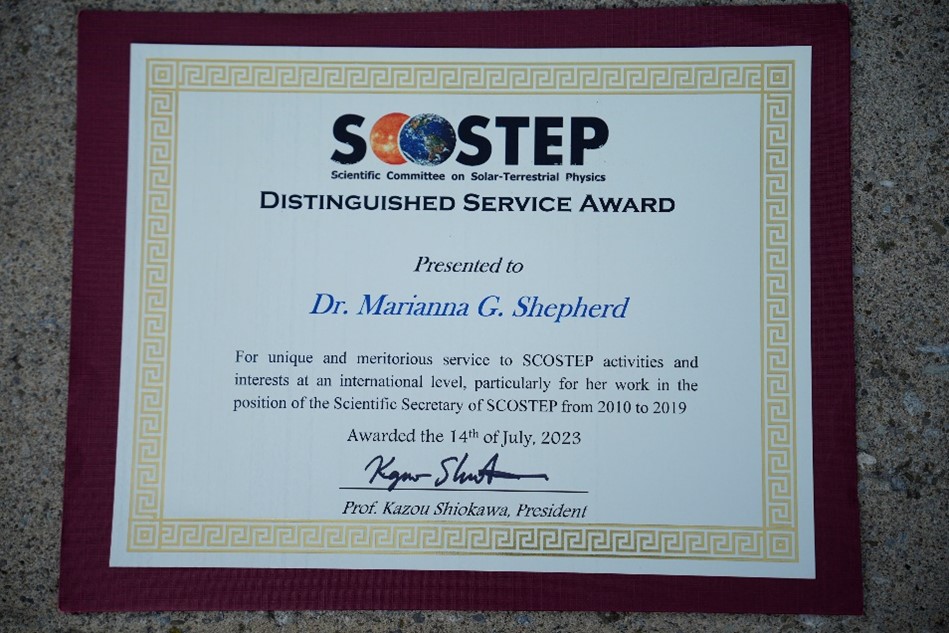The brains behind the operation: Lassonde adjunct professor awarded for nine years of remarkable work with Scientific Committee on Solar-Terrestrial Physics
Tags:

After nearly a decade of serving as Scientific Secretary for the Scientific Committee on Solar-Terrestrial Physics (SCOSTEP), Marianna Shepherd, an adjunct professor in the Centre for Research in Earth and Space Science (CRESS) at York University’s Lassonde School of Engineering, was honoured for her efforts with a Distinguished Service Award.
SCOSTEP is a thematic body of the International Science Council (ISC) that aims to strengthen and share knowledge on solar-terrestrial physics across broad scientific communities. In collaboration with members from over 34 countries, SCOSTEP brings its vision to life through interdisciplinary and public outreach programs and projects related to sun-earth connections.
As scientific secretary, Professor Shepherd tackled an endless list of responsibilities including organizing international symposia, facilitating educational programs and supporting international collaborations, to name a few. She went above and beyond to help elevate SCOSTEP’s global impact and shape the successful organization it is today.

“It’s very heartwarming to be recognized for my efforts over the years; this is a full-circle moment,” says Professor Shepherd. “This acknowledgement is more important than the medal I received, as I saw my role to be more than just a scientific secretary. When I was a graduate student, I didn’t have much support from my supervisors, so I wanted to use my position at SCOSTEP to positively impact the experiences of other graduate students and young scientists. I wanted to share my experience and knowledge, make people feel comfortable doing science and create equal footing. I believe this is a way to help people and in particular, young scientists to be creative and stimulate them to do their best.”
Some of Professor Shepherd’s notable work at SCOSTEP includes giving presentations to the United Nations’ Committee on the Peaceful Uses of Outer Space (COPUOS) at Scientific and Technical Subcommittee (STSC) meetings held in Vienna, Austria, as well as managing and organizing the SCOSTEP Visiting Scholars program (SVS). The SVS program provides young scientists and graduate students with formal training opportunities at prominent Solar-Terrestrial physics laboratories and institutions, such as the National Aeronautics and Space Administration (NASA), European Space Agency (ESA) and the Japanese Institute for Space-Earth Environmental Research (ISEE), thereby helping participants gain the necessary skills and experience to advance their future scientific goals.
Professor Shepherd also assisted in organizing the 13th Quadrennial Solar-Terrestrial Physics Symposium, held in Xi’an, China in October 2014. This event and other experiences prepared her for one of her most challenging and rewarding projects at SCOSTEP – singlehandedly organizing the 14th Quadrennial Solar-Terrestrial Physics Symposium at York University in July 2018.
“It took a lot of hard work and international organization to make the conference a success. I had to build it from the ground up,” says Professor Shepherd. “I’m very appreciative of the amount of support I received from York throughout the process; the right people came into my life at the right moment.”
She is especially grateful for the support she received from Lassonde’s Centre for Research in Earth and Space Science (CRESS), Professors James Whiteway, Mike Daly, Spiros Pagiatakis and Regina Lee, as well as the former Vice-President of Research and Innovation of York University, Professor Celia Haig-Brown.

During her time at SCOSTEP, Dr. Shepherd made an incredible impact on the organization, students, scientists, and other professionals across the globe. “After receiving my award, many of the graduate students I worked with called to congratulate me and thank me for the help I had provided,” she says. “I’m grateful for the experience I had at SCOSTEP; this whole process has given me moral satisfaction.”